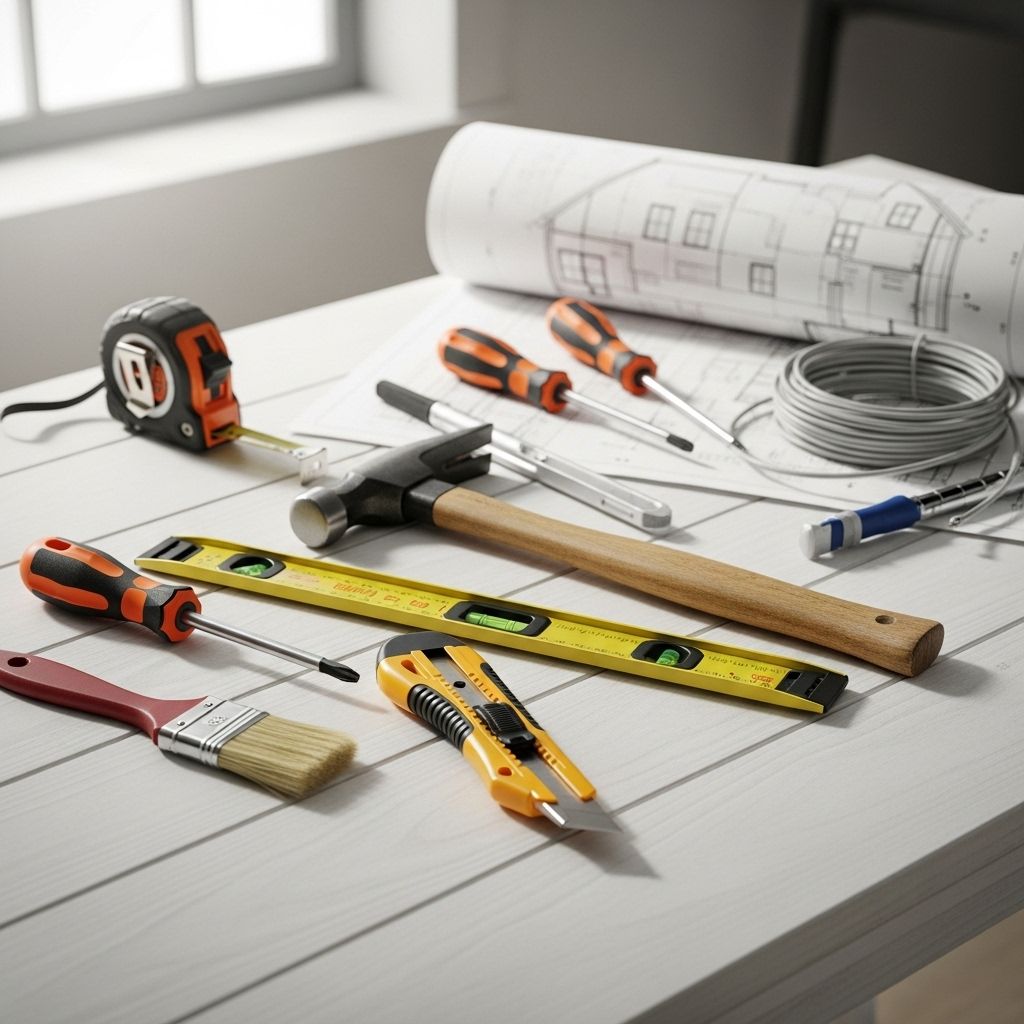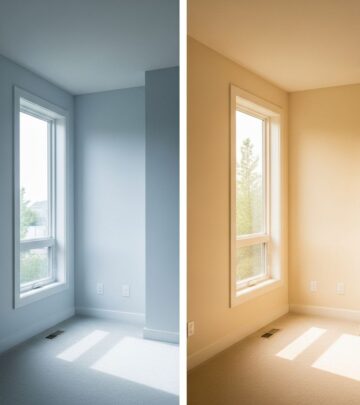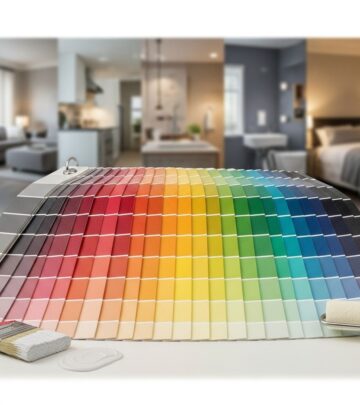Home Improvement Expert Advice: Insider Tips for Every Project
Expert guidance to streamline every renovation stage and keep projects on track.

Home improvement projects—whether small refreshes or full-scale remodels—can dramatically increase your home’s comfort, value, and efficiency. However, navigating all the decisions, options, and potential pitfalls can be daunting without reliable guidance. This expert-driven article provides practical advice for every stage of the renovation process, helping you plan, execute, and sustain projects that fit your vision, needs, and budget.
Project Planning: Where Every Great Remodel Begins
Effective planning forms the cornerstone of any successful home improvement project. Rushing in without a clear strategy may result in cost overruns, delays, and renovations that fall short of your expectations.
- Define Scope and Priorities: Identify the specific goals of your project—such as expanding space, updating style, improving efficiency, or enhancing resale value. Distinguish between essential upgrades and nice-to-have features.
- Create a Realistic Budget: Calculate anticipated expenses, allowing for a buffer of 10–20% for unforeseen costs. Research average prices for materials and labor relevant to your project and market.
- Timeline Development: Estimate how long each phase will take, recognizing factors like permit approvals, material lead times, and contractor availability. Flexibility is crucial—unexpected delays are common.
- Design Tools and Visualization: Use digital design apps and platforms to experiment with layouts, color schemes, and finishes before making any purchases.
Advance planning not only streamlines the construction process, but also maximizes the return on your time and financial investment.
Choosing the Right Project Type
Not every renovation needs a gut job or a big budget. Choosing the scope and scale that best fits your space, needs, and limits is crucial. Consider these common project types:
- Full Remodels: Transform the functionality and aesthetics of kitchens, bathrooms, or living spaces with extensive updates to layout, plumbing, electrical, and finishes.
- Small-Space Solutions: Optimize compact areas (closets, mudrooms, pantries) through built-ins, strategic furniture, or inventive storage.
- Budget-Friendly Makeovers: Focus on high-impact yet affordable upgrades—paint, hardware swaps, updated lighting, or new window treatments.
- Weekend Projects: Tackle manageable improvements like wallpapering a powder room, installing shelves, or applying peel-and-stick tiles.
Reference “before and after” inspiration to decide what kind of transformation suits your property and lifestyle.
DIY vs. Hiring Professionals: Know Your Limits
Some projects are ideal for handy homeowners, while others should always be handled by professionals. Consider:
- DIY-Friendly Tasks: Painting, minor landscaping, installing basic fixtures, and small tiling projects are often safe and manageable for confident beginners.
- When to Go Pro: Complex electrical, plumbing, structural, or roofing work require expert oversight to ensure safety, code compliance, and warranty protection.
- Building Your Skills: Take advantage of free classes at hardware stores, online tutorials, or volunteer repair organizations to expand your DIY repertoire.
| Task | DIY? | Hire Professional? |
|---|---|---|
| Painting, wallpaper | Yes | Optional |
| Floor refinishing | Experienced DIYers only | Often best |
| Structural changes | No | Essential |
| Plumbing/electrical | Minor only | Recommended |
Budgeting and Funding Your Project
Smart budgeting is essential to preventing overruns and stress during your renovation. Here’s how to keep projects financially feasible:
- Break Down Costs: Separate your budget into labor, materials, permits, and contingency.
- Find Funding: Consider saving in advance, personal loans, or home equity lines of credit for larger renovations. Familiarize yourself with available grants or incentives, especially for energy-efficient upgrades.
- Track Spending: Use a spreadsheet or home renovation app to monitor your expenditures in real time.
- Know Your Tax Benefits: Some improvements can yield tax deductions or credits, such as energy-efficient installations.
Always anticipate the potential for unexpected costs—and budget accordingly to avoid stressful surprises.
Maximizing Return on Investment
Not all renovations increase home value equally. If boosting resale potential or market value is a priority, focus on projects with historically strong returns:
- Garage Door Replacement: Often fetches return rates above 190%.
- Minor Kitchen Remodel: Yields up to 96% ROI, especially when updating cabinets, counters, and energy-efficient appliances.
- Bathroom Updates: New fixtures, vanities, and fresh tile typically recoup 74% of investment.
- Entry Door Upgrade: Energy-efficient steel doors can return up to 188%.
- Outdoor Enhancements: Adding decks, patios, or landscaping boosts curb appeal and overall value.
Consult recent Cost vs. Value Reports for your region, as market trends and buyer preferences can affect which projects deliver the best returns.
Getting Inspired: Design Trends and Resources
Stuck for ideas? Experiment with resources like:
- Pinterest and Houzz: Endless portfolios of renovation projects, before-and-after stories, and design boards
- This Old House and Better Homes & Gardens: Practical how-tos and expert recommendations
- Zillow Diggs: Explore finished projects by cost and connect with contractors
- HGTV: Reality-based inspiration with an emphasis on current trends and material options
Gather color swatches, create mood boards, and save digital inspiration to clarify your personal aesthetic before committing to materials or contractors.
Selecting and Working with Contractors
Hiring the right professional is as critical as finding a trusted doctor. To protect your investment:
- Research References: Ask for recommendations from friends, neighbors, or local real estate agents, and read online reviews carefully.
- Check Licenses and Insurance: Ensure the contractor is properly credentialed and carries up-to-date insurance.
- Review Portfolios: Demand examples of recently completed, similar work.
- Obtain Bids: Get at least three detailed, written estimates and clarify what is—and is not—included.
- Contracts: Finalize scope, payment schedules, timeline, and warranties in a formal document before work begins.
Maintain clear communication throughout the project and address issues promptly to avoid costly misunderstandings.
Essential Tools for Homeowners
Every home improver needs tools. Equip your toolbox with:
- Claw hammer and tape measure
- Screwdrivers (Phillips and slotted)
- Pliers and adjustable wrenches
- Level and stud finder
- Utility knife and safety gear
- Power drill for faster jobs
- Specialized tools for specific needs (tubing cutter, tile nipper, caulk gun, etc.)
Don’t underestimate the utility of your smartphone—measurement apps, augmented reality design tools, and tutorial videos put expertise at your fingertips.
Smart Spending: Save Without Sacrifice
You can create a stunning space on any budget with a few strategic choices:
- Splurge Wisely: Invest in items that are hard or costly to change later, like bathtubs or built-in cabinetry.
- Save on Finishes: Choose affordable lookalikes for tile, flooring, and fixtures that mimic luxury style.
- Shop Second-Hand: Discover reusable treasures at architectural salvage centers or online marketplaces.
- Opt for Energy Savers: Energy-efficient lighting, windows, and appliances save money long-term.
Overcoming Common Renovation Challenges
- Budget Overruns: Prioritize must-haves, stick to your plan, and adjust scope when costs surge.
- Design Dilemmas: Use “before and after” comparisons for clarity and browse diverse design resources for answers.
- Lack of Space: Embrace small-space strategies like vertical storage and multi-purpose furniture.
- Time Management: Tackle “weekend projects” when time is tight, and avoid starting new tasks before others are finished.
Professional advice is invaluable for structural issues or less common hurdles.
Maintaining Your Improved Home
The value of your renovation is preserved by good maintenance:
- Regular Cleaning: Adopt a maintenance schedule for new finishes to delay wear and decay.
- Material-Specific Care: Each surface and fixture may have unique cleaning and upkeep requirements—check manufacturer guidance.
- Seasonal Inspections: Review both interiors and exteriors for weather or wear-related issues and address promptly.
- Touch-Ups: Quickly repair small chips, repaint scuffs, and tighten loose hardware to keep improvements looking fresh.
Set aside a small repair fund annually for inevitable fixes and updates throughout the year.
Frequently Asked Questions (FAQs)
How do I determine if I should DIY or hire a pro?
Assess your comfort, experience, and whether mistakes could risk safety or property. If unsure, consulting with an expert can save trouble long-term.
What’s the best way to select reliable contractors?
Verify licenses and insurance, check references, review portfolios, and secure thorough written contracts before starting work.
Which projects typically offer the highest return on investment?
According to industry research, minor kitchen remodels, bathroom updates, entry and garage door replacements, and curb appeal improvements usually deliver the strongest ROI.
What should I include in my renovation budget?
Account for materials, labor, permits, and an extra buffer for unexpected costs (usually 10–20%).
How can I avoid budget and timeline overruns?
Plan thoroughly, specify all finishes in advance, monitor progress weekly, and communicate clearly with your contractor or DIY team.
Product Specifications (Reference Example)
| Publisher | Better Homes and Gardens |
|---|---|
| Publication Date | April 11, 2025 |
| Language | English |
| Print Length | 96 pages |
| ISBN-10 | 154786768X |
| ISBN-13 | 978-1547867684 |
| Item Weight | 10.2 ounces |
| Dimensions | 8 x 0.23 x 10.88 inches |
Conclusion: Bringing Expert Advice Home
Renovating your home can be richly rewarding—both financially and personally—if approached with care, planning, and expert wisdom. Whether you’re updating a room, maximizing small spaces, or managing a major remodel, let trusted information lead every step. Use these foundational principles and curated resources to create a space that’s both beautiful and enduring.
References
- https://manuals.plus/asin/154786768X
- https://historicphoenixdistricts.com/more/articles/top-10-home-improvement-tips-every-homeowner-should-know/
- https://www.nar.realtor/remodeling
- https://www.bhgre.com/bhgrelife/diy-projects-for-home-improvement/
- https://www.43re.com/2024/06/17/a-brief-history-of-better-homes-amp-gardens
Read full bio of medha deb










